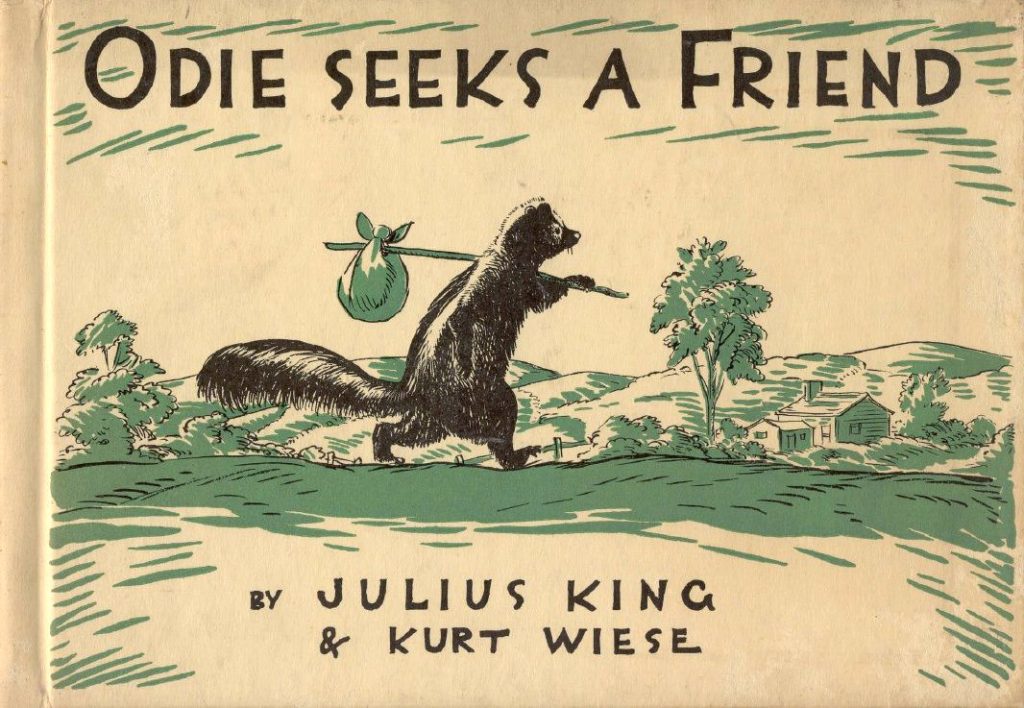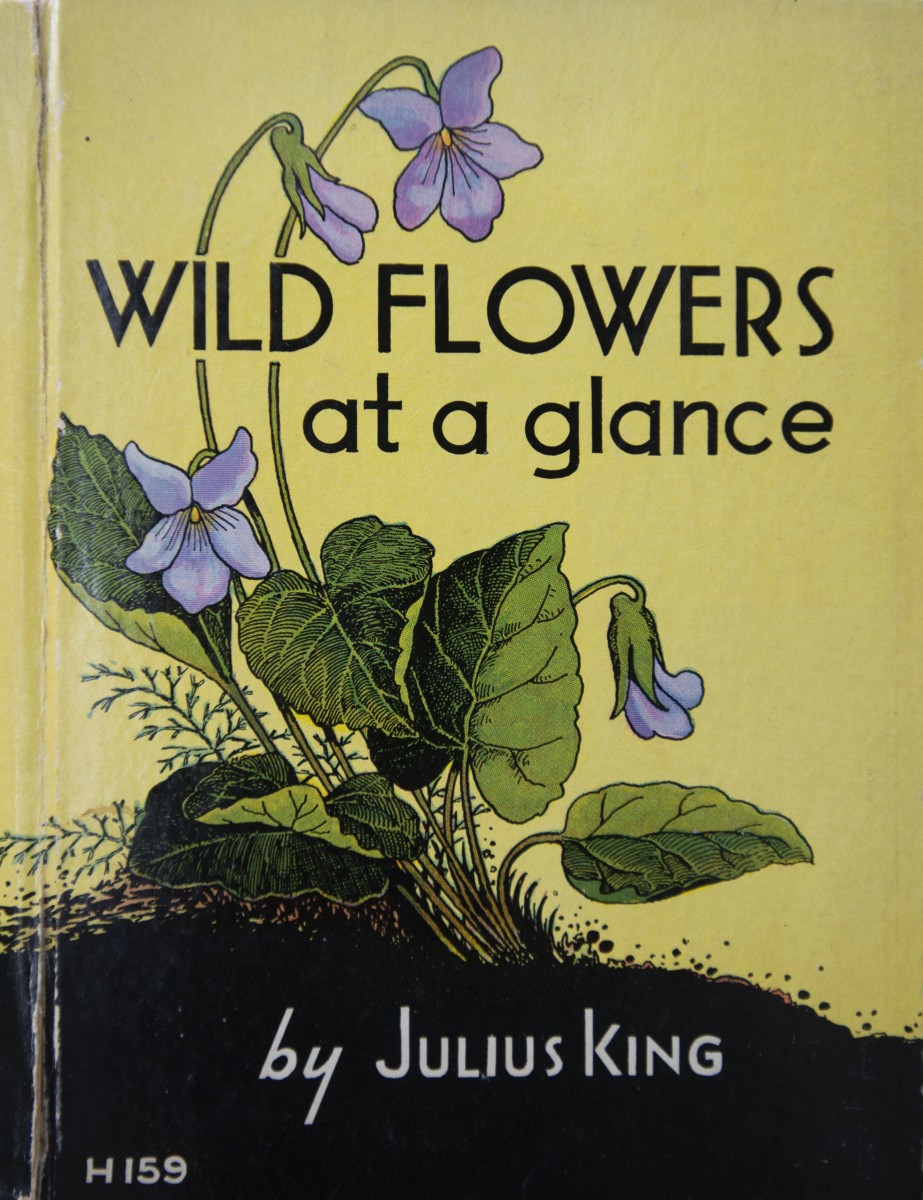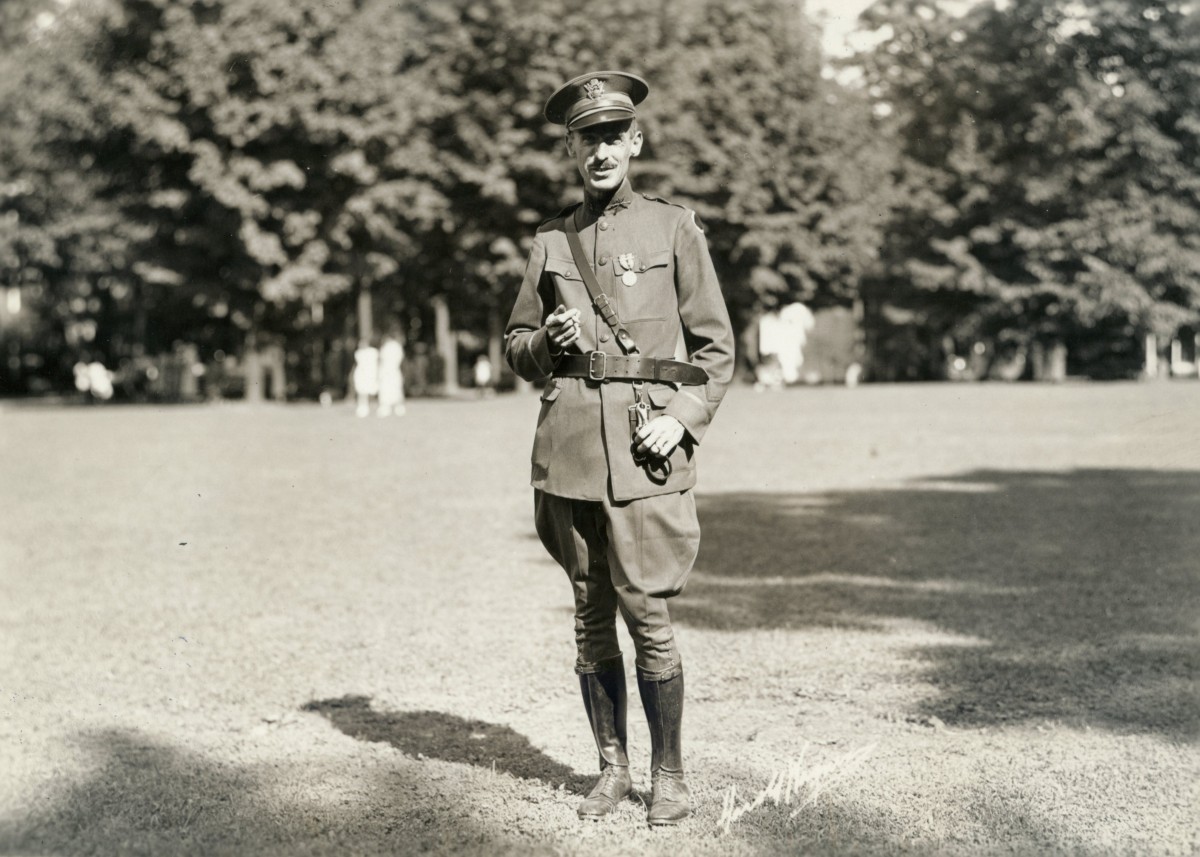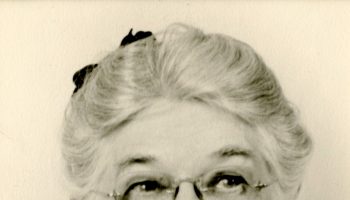LORI HUMPHREY
GUEST WRITER
Reporter’s note: This week, Chautauquans will explore “The Forgotten: History and Memory in the 21st Century.” This theme offers the chance to remember three of an army of forgotten Chautauquans whose lives, like unseen rocks in a stream bed, shaped Chautauqua’s current yesterday and today. This week, a three-part series introduces or re-introduces three Chautauquans: Monday, artist Will Larymore Smedley; Wednesday, author and poet Rebecca Richmond; Friday, author, Chautauqua public relations czar and entrepreneur Julius King.
Residents and visitors may not immediately recognize their names, as neither street nor building exist in their honor. Born at the end of the 19th century, they lived most of their lives in the first half of the 20th century, that era of American energy and action. Their lives, talent and character suggest that they shared those national traits leavened by their unique, independent spirits. We remember them not because they were celebrated — they were. We remember them because they seem to be models of lives well lived, an idea that Chautauqua embraces and encourages. Sometimes the glory of lives does not pass, it just hides until called in from the dark.
I am going out on a limb. Julius King — Chautauqua’s publicity director from 1933 to 1946, author, actor, painter, public relations guru, public speaker, entrepreneur — may be one of the most interesting and versatile men to stride Bestor Plaza. Urbane, handsome, dressed like a Gentleman’s Quarterly model and third-generation Chautauquan, he preferred to live at Tall Timbers, his Mayville farm, amid the fields and trees.
He was a multitasker. Even as he was one of the team leading the Institution out of bankruptcy, he was developing businesses in Jamestown and writing books about trees, flowers and animals for children and adults. He was comfortable in boardrooms and comfortable observing the skunks at Tall Timbers. Those observations became a children’s book, Odie Seeks a Friend, featuring Odie, the skunk. King said in an Aug. 25, 1937, Daily article that he would be an “artistic hobo” if he had a do-over. Neither King nor the article offer an explanation. He was adopted by the Ojibway Native American tribe when he was 12 and given the name Mish-quado — “Fair Hair.”
Chautauquan and president of the Alumni Association of the CLSC Dick Karslake, a cousin, remembers King and shared this memory.
“When I think of him, I see him in a lemon-colored jacket, wearing cream-colored slacks and brown and white wing-tipped shoes,” Karslake said. “He had a raspy voice, which was memorizing, and a terrific charisma. He looked like Douglas Fairbanks Jr.”
Karslake said that he remembered visiting Tall Timbers for family gatherings and shooting archery, and believes the property is on Moore Road. His sister, Kay Anne White, thought it was Potter Road.
King was a builder — relationships and connections his material. He had worked as a Dale Carnegie teacher, and Dale Carnegie turned up at the 1939-1943 CLSC National Book Fairs. His series of Birds I, II, III, 1934, utilized the use of the National Association of Audubon Societies’ copyrighted bird color plates of illustrator Allan Brooks. The partnership allowed the inexpensive price of these books.
T. Gilbert Pearson, first president of the National Association of Audubon Societies, wrote three introductions to the books. He was especially interested in birds and had visited Chautauqua between 1919 and 1935. He spoke at the Bird and Tree Club — now known as the Bird, Tree & Garden Club — during Mina Miller Edison’s tenure as club president.
 However King established his relationship with Audubon, it continued. National Audubon Society President John H. Baker described Telling Trees, published in 1953, as “the book everyone is looking for.” Evan Thurber, aka E.C. Thurber and a Chautauquan Daily employee, illustrated Wildflowers at a Glance, and Annuals You Should Grow. Artist and Chautauquan Will Larymore Smedley was science consultant for Wildflowers at a Glance and Talking Leaves.
However King established his relationship with Audubon, it continued. National Audubon Society President John H. Baker described Telling Trees, published in 1953, as “the book everyone is looking for.” Evan Thurber, aka E.C. Thurber and a Chautauquan Daily employee, illustrated Wildflowers at a Glance, and Annuals You Should Grow. Artist and Chautauquan Will Larymore Smedley was science consultant for Wildflowers at a Glance and Talking Leaves.
King’s family’s long association with the Institution began with his grandfather, Dr. Julius King, one of the first trustees. Though Julius King’s first priority was Chautauqua, he was not insular. He recognized that the economic health of the Institution was linked to the county and region which lay outside its gates and set about to “reach out” in his unique style. In 1940, he was honored at a testimonial, which stated “Julius King has proven himself to be a civic asset in Jamestown as a ‘winter supplement’ and to all the Chautauqua area because of his brilliant professional leadership on behalf of Chautauqua Institution during the remainder of the year.”
In 1943, the Jamestown Post-Journal reported on his numerous and diverse speaking engagements including the Jamestown Daughters of the American Revolution and the Swedish Club at Alfred University. What King did, spoke about and joined was regularly reported from around 1930 till he left the area in 1959.
Jamestown’s regard for King is evident in the Jan. 14, 1964, Jamestown Post-Journal editorial after his death on Jan. 8, 1964. It states that the news of his death “saddened a host of his friends, who missed him since he moved to Fairhope, Alabama, five years ago. He is especially missed by newspaper people who so well recall his gracious manner in bringing news of Chautauqua and in later years of other enterprises which with he became associated.”
He was a member of the team that saved Chautauqua during the Depression. Theodore Morrison, author of Chautauqua, A Center of Education, Religion and the Arts in America, writes that “under a plan credited to Julius King, publicity director of the Institution, all Chautauqua property, bit by bit, was offered for symbolic sale.” His Chautauqua career expanded to include executive secretary for the Diamond Jubilee Campaign for Chautauqua, in charge of publicity and promotion. Additionally, he was secretary of the Chautauqua Reorganization Corporation with the responsibility of writing columns to explain the strategies to rebuild Chautauqua’s financial structure.
In 1934, King added director of the Chautauqua Literary and Scientific Circle to his responsibilities. A natural promoter with the instincts of an intellectual P.T. Barnum and the commitment of an advocate, King, with Mabel Head, organized the first CLSC National Book Fair in 1939, attracting 38 publishers, the likes of William Lyons Phelps, Yale professor emeritus of English, Dale Carnegie, and an audience of 5,000. The fair ended after 1943, the result of a World War II paper shortage.
In 1946, he would resign from his Chautauqua post. A tree is the image he used in his parting statement in the Post-Journal.
“It is like uprooting a tree to withdraw officially from so important a place. But my personal connections and friendships will be maintained,” he wrote. “It has been a stimulating experience to have a part in the saving of a great American institution and see it now in sound condition and facing the future so confidently.”
The Nov. 2, 1944, Post-Journal article listed King’s Jamestown business interests: public relations counsel to various businesses; director of James River Broadcasting Corporation.; development of the “Furniture Index”; member of the editorial boards of the Arbitration Journal and Youth Digest. The Aug. 16, 1940, Daily article adds Dale Carnegie course teacher and promotion editor of the Post-Journal, then called the Jamestown Morning Post.
King’s formal responsibilities ended, but he was not one to burn bridges. True to his word, he continued to participate at Chautauqua in multiple ways, including as narrator at the 1948 re-enactment of the Institution’s beginnings, a featured speaker at the Chautauqua Women’s Club and Bird and Tree Club, and hosting Chautauqua guests and residents on his twice weekly WJOC radio program. Tall Timbers would continue to be the site of nature and bird watching tours until it was sold after the Kings moved to Fairhope, Alabama, in 1959.
King made good copy. The 1,000 or more Daily references, extensive Post-Journal, Evening Journal, and other regional newspapers’ reporting is informative. Though his books are listed to or referred to in some articles, business reporting trumps book reporting, and his Chautauqua role or business affairs were of greater interest. Julius King, the naturalist and author of at least 13 children’s nature books and four coloring books, is more difficult to uncover.
For a man whose profession was words, he is unexpectedly reticent about why he wrote the children’s nature books. The pragmatic answer: He found a successful market. Of course, but I would suggest that writers write about what they love, hoping it will find a market, and I don’t think King was different.
Hints are scattered here and there, suggesting that King began his lifelong relationship with nature when he was young. On the jacket of The Indian Nugget, a semi-autobiographical tale of a fictional Dawson Parker, published in 1931, King writes : “When I was a young fellow — about 12 — I went to Canada and had the adventures Dawson Parker had in this book … and was adopted by the Ojibway Indians – and was named Mish-qua-do which means ‘fair hair.’ ”
He signed, “Julius King, Mish-qua-do.”
Karslake said that he remembered hearing that King had spent time with a Native American tribe and was adopted by them. That experience may have influenced the title of one of his most popular books, Talking Leaves, which is the Native American name for “book.”
The Daily July 3, 1940, article reported on his Bird and Tree Club talk “The Truth of a Naturalist’s Life.” It is a light-hearted, but superficial description of his failures planting cherry trees, berry bushes and establishing bird nests at Tall Timbers. However, the younger Julius King reappears. He retold his experience killing cottonmouth snakes as a 12-year-old visiting Florida. The talk also inadvertently reveals his affection for life amid the fields and trees at Tall Timbers.
The most explicit statement acknowledging King’s love of nature occurs in a July 6, 1939, Daily article, which ends with this statement: “Today he lives at what he somewhat smilingly calls his ‘country estate,’ which bears the picturesque name, ‘Tall Timbers.’ It is close to the two things that are very dear to Julius King — the birds and trees and animals — and Chautauqua!”
Clarity and education seem to be a prominent impulse also. The Aug. 8, 1936, Daily report of his CWC talk, “Why I Wrote as I Did and Why I Write as I Do” offers some insight. He said, “After I had written three small bird books, Wild Flowers at a Glance and Talking Leaves, a book so simple that even I could understand it, Mr. Fisher (unknown) told me that this book was good because I knew nothing about the subject, had written it as a layman, and hence the book could be read as an introduction to the subject of trees. This is one reason why I write as I do.”
The Aug. 16, 1940, Daily article reports, “He started writing those children’s books of his so his own children might have the kind of simple excellence he demanded for himself.”
Telling Trees is described as written for people who like to go into the woods and who want a definite answer to the question, “What tree is that?”
It would be a disservice to ignore the format of King’s books. He does not dumb down the information for children; he simplifies it. Both child or adult will learn easily and pleasantly from his thoughtful combination of illustration and information. The information is very visual. For example, the book Annuals You Should Grow offers a chart that succinctly and graphically offers essential growing information.
Birds in Rhyme, Birds I, II, III and Mild Animals combine beautiful illustrations, information and a charming surprise: King’s rhyming couplets describing each bird and animal. The poems also suggest that King had a sense of humor and a fanciful, anthropomorphic view of the animals and birds he cherished. For example:
“SWALLOWS”
“Like musical notes on the telephone wires,
Then dipping and darting around roofs and spires,
The Swallows are with us from morning ’till night,
Their habits a source of unending delight;
No birds more entrancing and few half so gay
As the Swallows I saw skimming skyward today.”
The Oliver Archives Center has typewritten copies of The Indian Nugget and Mild Animals texts. One from Mild Animals, written in his meticulous hand follows.
“PORCUPINE”
“A bristling front or sharpened spear
With piggy eyes and little ears
A lazy walk and poor eyesight
The porcupine is just a fright
He has no other thought than food
His ways are rough, his manners rude
He’s eating all day long and night
He’s just a walking appetite.”
The King archives also includes several copies of his books and a copy of The Natural History of Chautauqua by Vaughan MacCaughey, who was a teacher of natural history in the Chautauqua Summer School.
King and his wife, Rebecca, would move to Fairhope, Alabama, in 1959, and he would become an active member of his new community. He died unexpectedly Jan. 8, 1964, in St. Petersburg, Florida, where he was promoting his book Laugh Off the Sunset Years. He was 70 years old, born Oct. 5, 1893, in Cleveland, Ohio.
The surprisingly brief announcement of his death in the July 3, 1964, Daily “Chautauquacade” column said, “Mr. King will be remembered for many years for his achievements in attracting interest in Chautauqua and in telling the story of Chautauqua around the nation. … His books should live long after him in the hearts of children who may be attracted to interests in nature through Julius King’s story telling and pictures.” Chautauqua had moved on.
My favorite picture of Julius King pops up in a small piece in the Aug. 24 and 25, 1996, Daily. It tells of King picking red cardinal flowers on the Chautauqua Golf Course for his 1937 CLSC classmates to carry in the Recognition Day Parade on Aug. 19. King was president of the class, the class flower was the cardinal flower; they grew in profusion on the Chautauqua golf course — a perfect Julius King moment.
Farewell, Mish-qua-do.





